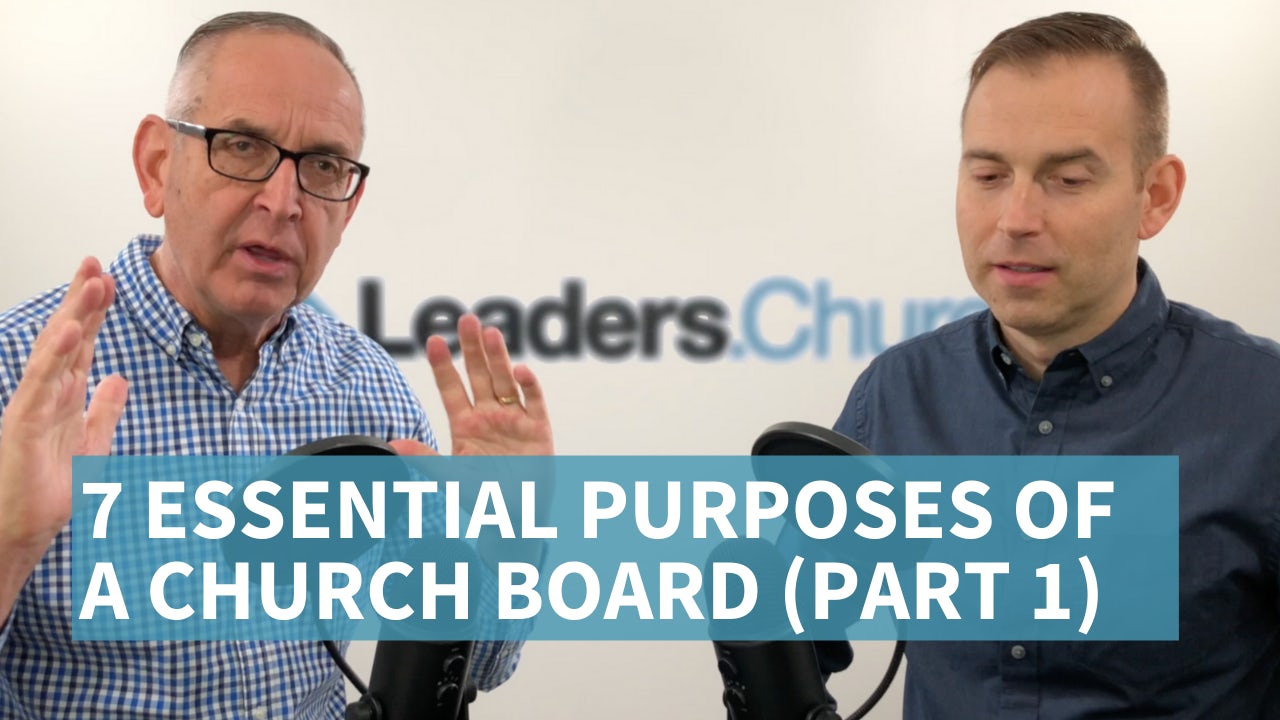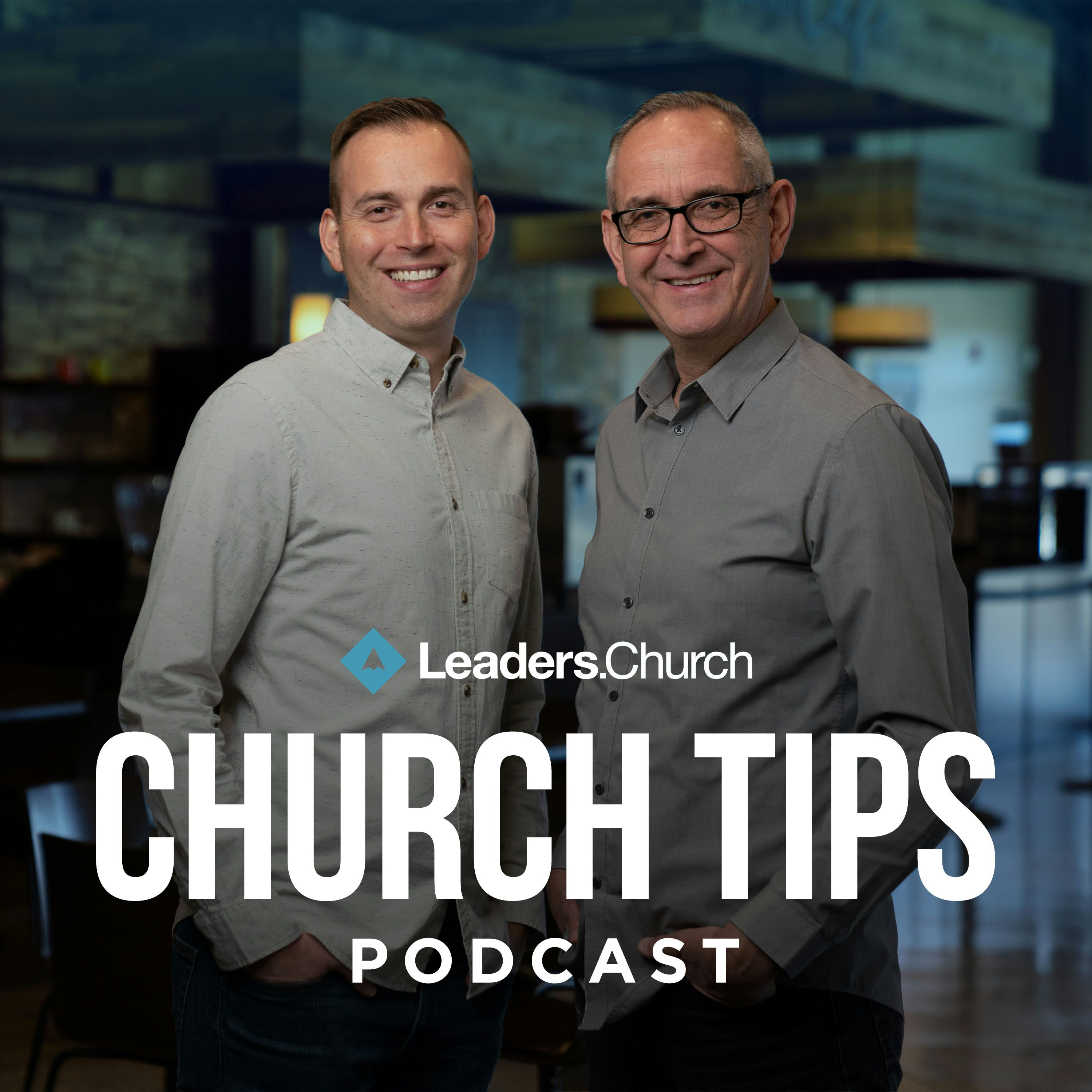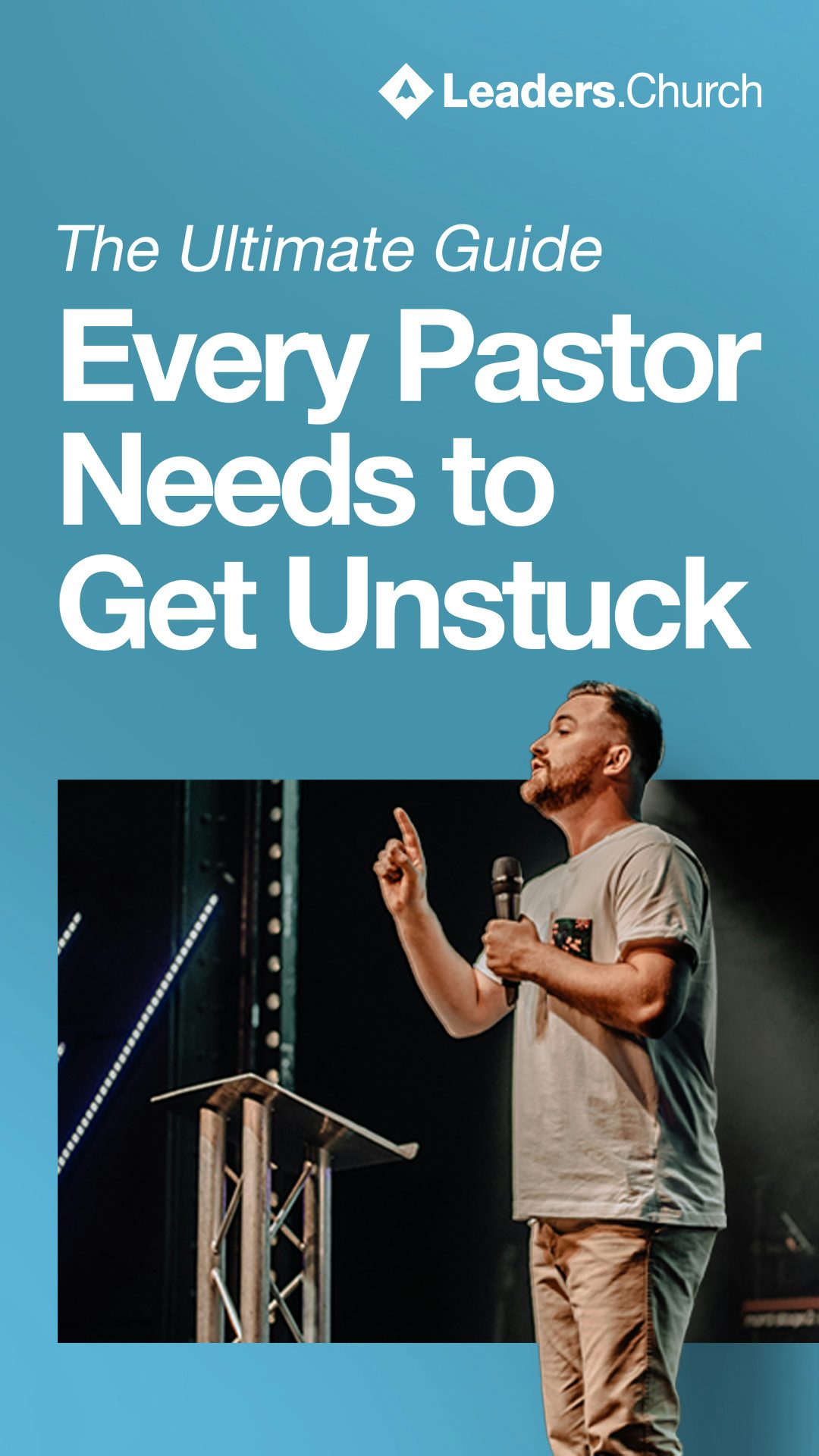018 – 7 Essential Purposes of a Church Board (Part 1)
What’s in this Episode?
Have you ever wondered what the concept of deacons, elders and pastors is supposed to be and what it’s supposed to look like in the 21st century? There are many different types of ways to do governance. And when it comes to the idea of a church board, some wonder, is this even biblical? What should it look like? What’s the purpose? Well, guess what? We’ve got an answer for you today.
Read the Transcript
Jonathan Hardy 0:21
In 2013, we planted a church, Summit Park Church, and moved up to Kansas City, Missouri to start this church. And as you know, when you’re starting a church, one of the things you have to do is you need to find a church board. And so as we started collecting the people, and people started saying they’re going to be a part of the church, we got to the point eventually, where we were able to set up a board, And so we, you know, had selected these folks and sitting around the table with these people. And, you know, they’re excited about the opportunity they have and they understand the role. Well, they may not have understood the role, but they understood the you know, the concept, the benefit of what they’re going to be able to be a part of, and they were honored to be a part of it. And so one of the things we had to do is talk to them more about the roles and responsibilities and help them understand what it is that they do and how this fits into the overall context of the church. And what I found and I know you found to be true is a lot of people that are on church boards don’t have an understanding of it. And it all starts with a pastor being able to articulate what it is that a board is supposed to do. What’s their role? What’s their responsibility? And so that’s why in today’s episode, we want to talk about the roles and responsibilities and we’re going to look specifically at 7 Essential Purposes of a Church Board and this is really part one of a two part series here on it as we break these down over this episode and then in the next episode, helping you understand the seven essential purposes of a board. So that way as you recruit board members, as people come onto the board, they’re able to understand what this thing is all about. So are you ready to go? Are we gonna do this?
Dick Hardy 2:03
Let’s jump into it!
Purpose #1: Spiritual Support
Jonathan Hardy 2:04
Okay, so today we’re going to talk about a few of these seven. First is simply this, the board serves as spiritual support. It’s very important for board members to understand the spiritual support that they play for the pastor and for the church. So we want to make sure that they know that it’s important for them to be praying regularly for the church. Are they praying about the needs and the opportunities and the things that are pressing for the church. And just praying for the people of the church, that God would have his hand on them. So we want to have them praying for that. You also want the board members praying for the pastor and the other leaders as well, that they are just going to the Lord asking for wisdom and help for their pastor. And if that’s you, you’re asking him to pray for you, basically, and it’s okay to ask for that. You want them to and they want to do that. But you have to articulate that. And then you also want to make sure that they’re praying for each other. One of the things that… sometimes I think they get the first two, but then when it’s like, well praying for each other, they’re maybe not thinking about that as much. In most churches, this group of board members is serving as the key leadership of the church. And so they need to be unified. Absolutely. They need to be supporting each other in prayer, and really coming together as a group of individuals to help see things happen in the church. So…
Dick Hardy 3:25
They really do and I will tell you, I’ve seen it over and over, when board members pray for each other. And then when you hit a bump at the board table, and you will, when borders have been praying for each other, it’s a lot better to move through that bump together. Yeah, if you’re not brave for each other, it’s easier for board members to go (grumble). So that’s spiritual support. A board member can sometimes feel like oh, yeah right… Well no. That is absolutely critical. It’s why it’s listed number one.
Purpose #2: Missional Fulfillment
Dick Hardy 3:58
Number two is missional fulfillment. Let me tell you, when I do board training for pastors and boards, I’ll tell them, their very first highest level role or responsibility they ever do is to engage the ministry services of the pastor. So maybe you’re the pastor and some board is, you know, chosen to have you come in and be their pastor. That’s their very first because that charts the direction for the church, the second most important thing that they’ll ever do is to protect the mission. And that’s our second point here. missional fulfillment. The board’s role, and we talked about this, in fact we talked about this in the church board track of training, which we’re making available to you if you’re watching or listening to this podcast. If you’ll go to Church.University.com and click on the Church Board Track and put in promo code 50off, that’s 50off… you can get the full board training. That’s 57 videos, downloads, templates, everything that will help your church board be better. And one of the things, well, amongst many we talked about, is missional fulfillment, the responsibility of the board to protect the mission. If your mission is something like: “to reach spiritually lost people with the gospel,” the board is not to be involved in the nitty gritty of strategy. The board is to be involved in protecting that mission, making sure the church is staying on mission. And when boards do this, and pastors are involved in strategy, it’s the best of all worlds, and you’re going to see good things happen. And let me also note on the subject of mission fulfillment, it’s the board’s role to guard against what’s called mission drift. Now, what is mission drift? Mission drift is when you say you’re about something, but over time, it just begins to fade away and change and you can look, I’m not being critical of any specific organization, denomination or ministry, but you can look at some that have been on point at one point decades ago, and yet today, they’re a shell of what they used to be. And in large part, it’s because a governing board did not protect the mission and they drifted. And they drifted off of their primary purpose.
Jonathan Hardy 6:27
And this is so important, because this is just human nature. I mean, it’s just you look at life, that we all have this tendency to drift. It’s like you go to start working out at the new year because you’ve got these goals. And you know that over time, “well I’ll sleep in this day,” and before long, you just slide away. And it’s just one of the natural tendencies that happens. But then when it comes to the spiritual side of things, the enemy wants to do everything he can to get us off focus and off course of what we need to be accomplishing. And so that’s why, yeah, this is a huge point.
Purpose #3: Policy Guidance
Dick Hardy 6:56
Yeah, there you go. Number three is the policy guidance. Now, this can really seem like “oh my goodness, this is exciting.” This is the third of the seven essentials of a church board. Now, let me talk to you about that. It doesn’t sound very spiritual, but it’s critically important. And by the way, when I talk about policies, I do recommend that you have smaller policies. You know, if I asked you, I got a church with a policy manual that thick, a church with a policy manual that thick, which one is growing? And you know the answer that one, it’s the one that is kept a little small policy manual, but it is important that you have something set in place that helps guide your church when things come up. But be careful that you don’t create policies as a reaction to something. You know, the church that has a policy manual that’s thick, what they’re doing, what they’ve done, is over the years, they’ve reacted to everything that happened. “Well, the van broke down 50 miles away from, so therefore, you can’t drive the van 50 miles away from town.” “You know, this happened over here, so you can’t do it.” Don’t do it that way. Be proactive on things that you think the church needs to have some written guidelines on. Here’s what it does. Policies set direction. They don’t do things, but they set direction. Policies define a course of action, and policies are prudent and wise. The best organizations, the best ministries, the growing organizations have policies that guide them forward. Are they going to be adjusted? Yes, policies are not like your mission. Mission doesn’t change much at all. Policies will shift from time to time and that’s okay, but it’s important that the board is signing off on those. Correct policies are, I’m gonna use the word preparatory, if you can use that word, not reactionary. So if you’ll do that, you’ll see the church be positioned for the best days ahead.
Recap:
Dick Hardy 9:03
So let me give you the three that were covered today, and in the next episode we’re going to cover four more. The board’s essential. It’s essential that they provide spiritual support, it’s essential that they do missional fulfillment, protect the mission. And it’s essential that they do policy guidance to set the framework for the direction and future of the church. So there you have it Jonathan. What else do we want to cover?
Jonathan Hardy 9:25
Well, that’s good. I wanted to mention that we have a PDF that we want to give to all the listeners and viewers today. It’s called the 18 Rules of Engagement for Church Boards. And so this breaks down some of the roles and responsibilities more in this discussion we’re having today and then the next episode is more about the purposes of the board. But we do have a resource that we want to give to you that’s specific to the roles and responsibilities. And really we break it down into 18 different things that they need to be kind of mindful of. You could use this as a great tool for training and orienting new board members or just doing a refresher with current ones. And we have churches that use this as they have board meetings, they say, “okay, well let’s talk about this, this one of the 18 today or this couple of these 18.” So to get this PDF, just go to Leaders.Church/rules. That’s Leaders.Church/rules, you’ll get the 18 Rules of Engagement for Church Boards PDF, it’s a free PDF. Just want to make that available to you. So make sure to grab that if you want. And then, as well, if you have not yet subscribed, we want to have you subscribe on YouTube, subscribe on the podcast platforms. Make sure wherever you’re watching or listening to this, you can make sure to stay tuned for upcoming Church Tips. And with that being the case, thank you so much for being with us today. We’ll look forward to seeing you next time.
Subscribe & Follow:
- Subscribe on Apple Podcasts
- Follow on Spotify
- Subscribe to YouTube Channel
- Subscribe on Google Podcasts
- Like us on Facebook
- Follow us on Instagram
- Follow us on Twitter









